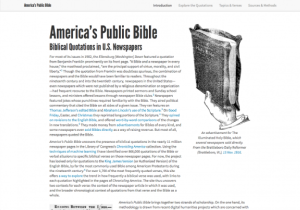 |
February 17, 2017 Volume 23, Number 7 |
Research and Education |
General Interest |
Network Tools |
In the News |
Research and EducationBack to Top | |
 |
|
 |
|
 |
|
 |
|
 |
|
 |
|
 |
|
 |
|
General InterestBack to Top | |
 |
|
 |
|
 |
|
 |
|
 |
|
 |
|
 |
|
 |
|
Network ToolsBack to Top | |
 |
|
 |
|
In the NewsBack to Top | |
A Long-Forgotten Essay from Winston Churchill Asks, "Are We Alone in the Universe?" | |
|
Winston Churchill Wrote of Alien Life in Lost Essay "Are We Alone in the Universe?" Winston Churchill's Lost Extraterrestrial Essay Says No Winston Churchill's essay on alien life found Churchill's scientific papers reveal an even greater politician than we thought National Churchill Museum Science Museum: Churchill's Scientists http://www.sciencemuseum.org.uk/visitmuseum/Plan_your_visit/exhibitions/churchills-scientists In 1939, Winston Churchill penned an eleven-page essay titled, "Are We Alone in the Universe?" In this essay, the British prime minister employed scientific curiosity and logic to investigate the possibility of extraterrestrial life. By considering the conditions necessary to support life, Churchill hypothesized that life on other planets was not unlikely. In the 1950s, Churchill revised his essay and passed it on to his publisher, Emery Reves; however, the essay was never published. Three decades later, Reves's spouse donated a collection of papers, which included this essay, to the National Churchill Museum in Fulton, Missouri. Museum director, Timothy Riley, came across the long-forgotten paper last year and passed it along to astrophysicist Mario Livio. In an article published this past week in Nature, Livio suggests that Churchill, who maintained a lifelong interest in science, displayed "the healthy skepticism of a scientist." "Are We Alone in the Universe?" also speaks to the global climate in which Churchill was writing. Authored just as Great Britain was entering World War II, Churchill notes: "I, for one, am not so immensely impressed by the success we are making of our civilization here that I am prepared to think we are the only spot in this immense universe which contains living, thinking creatures or that we are the highest type of mental and physical development which has ever appeared in the vast compass of space and time." [MMB] With the first two links, readers can find out more about this recently uncovered essay from The New York Times and Smithsonian Magazine. Next, readers will find Mario Livio's article in Nature, followed by an editorial that appeared in The Guardian earlier this week. In this piece, science writer Graham Farmelo reflects on the significance of Churchill's interest not only in politics, but in science. The fifth link takes visitors to the National Churchill Museum, which includes a list of Churchill's publications along with the full text of many of his most famous speeches. Finally, visitors can learn more about the prime minister's dedication to science via the virtual exhibition Churchill's Scientists, courtesy of the UK's Science Museum. | |





